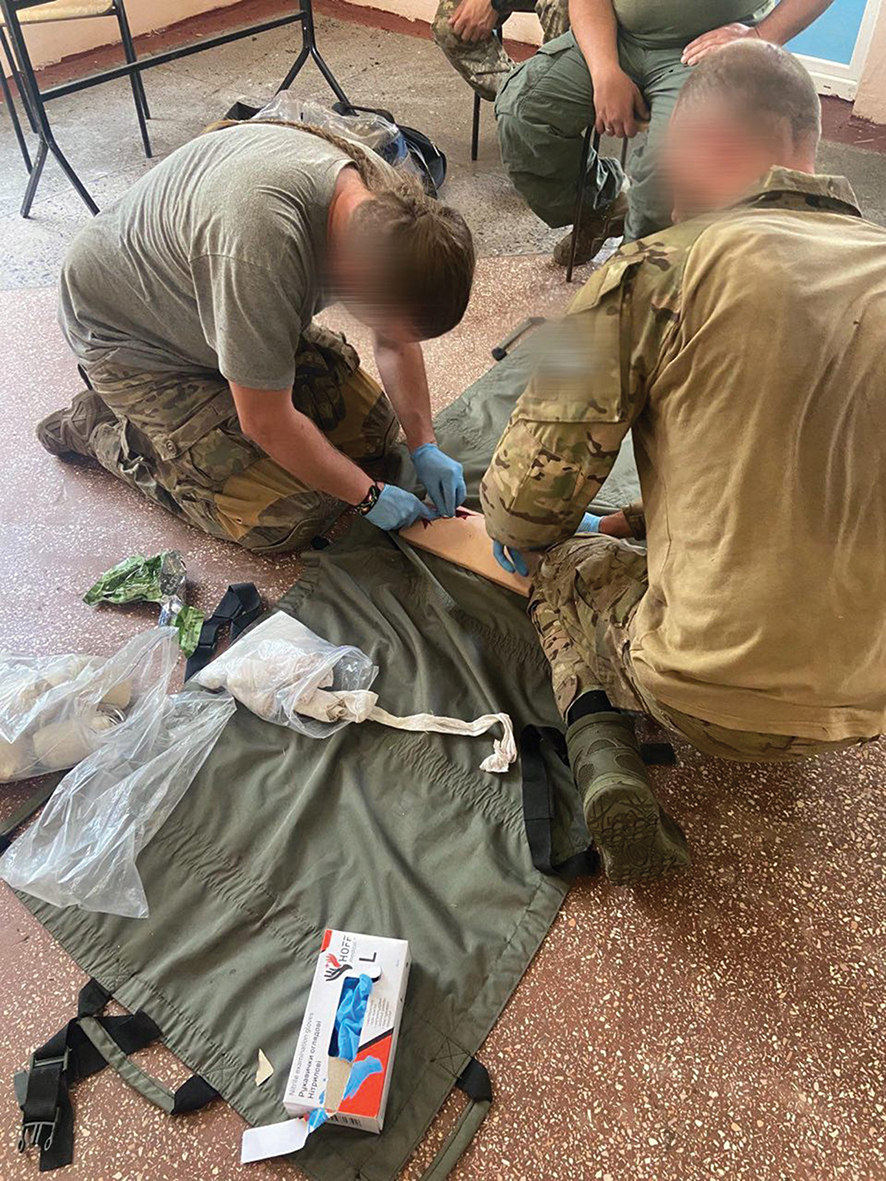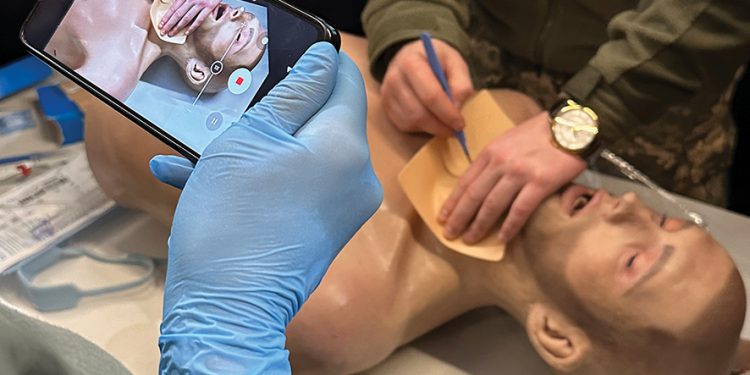Picture this: A brisk walk along the seashore, wind roaring in your ears, uncomfortable weather. But for your companion, a kite surfer, it’s pure ecstasy. That’s the kind of perspective we need when we talk about harnessing the potential of war veterans. This is an unavoidable topic for Ukrainian society.
Reintegration of veterans is no longer just a talking point in boardrooms or at ministry round tables. It’s the buzz on social media, with civilians sharing stories of interaction with veterans, particularly those battling mental health demons from their war experiences. It’s a conversation not just for the elite, but for every individual who cares about Ukrainian society.
But let’s be realistic: Reintegration isn’t a walk in the park. It’s about reshaping lives, finding new roles, and embracing opportunities beyond the status quo. Ukraine’s surge in militarization, due to the Russian invasion, isn’t just a phase; it’s a strategic shift in Ukrainian capabilities, highlighting the need for skilled professionals with combat experience.
There are many difficulties faced by the veteran, their employer, family and others in the process of reintegration. Especially if reintegration is understood as a return to the status quo, a return to a past life, to a past position. This is a difficult path, and borrowing the best world practices is a useful thing. This is a search for a new job, and more importantly, a new role in society, already taking into account the veteran’s combat experience.
There are a number of professions where a veteran is the most obvious candidate. From instructors in first aid and tactical medicine to leaders in defense industries, their potential is limitless. Let’s examine the example of an instructor in first aid and tactical medicine. There are millions of citizens needing lifesaving skills, and who better to teach them than those who have faced life and death situations first-hand?
How many citizens should know how to stop the bleeding? Almost every adult who can witness a road accident, household injury, not to mention a missile attack. These are millions of people, without exaggeration, not counting the need for instructors of the Defense Forces of Ukraine, private manufacturing companies, hotels and restaurants. Based on the Western standards of first aid training, which advise retraining in first aid every year or every 2-3 years, we understand that Ukraine needs at least thousands of instructors.

That’s where initiatives like the Ukrainian charitable foundation PULSE come in. PULSE became the biggest training organization for tactical medicine. Teaming up with the Renaissance Foundation, they’re blazing a trail, training veterans to become the next generation of lifesavers and leaders in pre-medical care and tactical medicine.
So, let’s not just talk about reintegration; let’s embrace it as a societal duty, a chance to empower those who have risked it all for a common goal. It’s not just a path backward; it’s a leap forward into a future filled with endless possibilities. These are not just challenges; they are opportunities waiting to be seized.
Reintegration of veterans is society’s duty to people who risked everything they had, who lost a lot for a common goal. This is a difficult path, in which it is worth studying all possible experience. But this is not necessarily the way back, on the last day before the service. Sometimes it is a step forward. These are opportunities, as shown by some personal stories.
The story of Andriy
Andriy Balyuk was a man who tried various professions, in recent years working as an air conditioner installer in Poland. But when the clouds of war gathered over Ukraine, he felt the call of duty and returned to his homeland to join the Armed Forces. There, he went through various positions, from a rifleman to combat medic, and then became a combat lifesaver.
Returning to civilian life was challenging for Andriy. His brother, who also served, is officially considered missing in action but is actually in captivity. It was during this time that Andriy felt a great responsibility to his family. Suppressing his emotions, he tried to find a peaceful profession, but soon realized it was not his path. In the first month after his return, he fell into a spiral of alcohol, succumbing to heavy thoughts and losing faith in himself.
However, fate brought him a new opportunity. Even during his service, he had thought about becoming an instructor. His wife helped him find a job at PULSE, where he became an instructor in tactical medicine. Andriy has been working there for three months now.
The story of Oleksandr
Oleksandr Kovalchuk is a man with an impressive military and civilian career, who has faced many trials and challenges in his life. Before the war, he worked in a managerial position at a pharmaceutical company, and later opened his own clinic in Odessa. However, when the war broke out, he felt a sense of duty and joined the Armed Forces.
In the Ukrainian Armed Forces, Oleksandr was the head of the evacuation department, where he managed operations to evacuate the wounded from the battlefield. For the past seven months, he has not been rotated out and has been constantly under fire. As a result of these dangerous conditions, he sustained serious injuries, including damage to his eardrums.
After completing his service in the Armed Forces, he was discharged to care for his father, who required special attention due to disability. He knew that his war experience and psychological difficulties could make his adaptation to civilian life difficult, but he considered it normal, understanding that many people around him do not know the horrors he experienced.
Currently, Oleksandr works as an instructor one week per month, helping other veterans adapt to civilian life and overcome psychological difficulties.
The story of Misha
Misha has a long and complex story. He was a masseur. Massage for Misha was not just about working with muscles; it was about restoring energy and harmony. But life is unpredictable and the war changed everything. Misha became a combat medic, helping those who found themselves in the fiery depths of war, his heart filled with the desire to help, protect, save.
Of course, the war left its scars. War traumas became an integral part of life. Returning to peaceful life was difficult. Massage, which was once just a job, now reminded him of the pain and fear of war. Clients, as if reading his thoughts, felt his past and refused his services. It was like a battle with the police where you couldn’t win. So Misha sought new horizons.
And then PULSE opened up – not just a job, but a new chance. A chance to help people without dwelling on their past experiences. Being a tactical medic instructor is more than just a job. It’s his way of continuing to help, protect, save. His hands now heal wounds. And although the past will always be a part of him, he is ready to move on, opening a new chapter in his life.
Blog by Ugo Poletti, Chief Editor, The Odessa Journal
*Written by Ugo Poletti on contents offered by PULSE, Ukrainian charity organization, based in Odessa, an authorized training center focused on tactical medicine. https://www.pulse.charity/en














